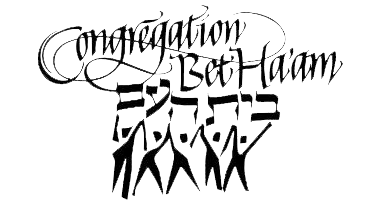A Book Review
I should have majored in Biblical History when I first went to college in 1968. I certainly had a thirst for it, even at age 18. But eventually the love of science and medicine forced me to put it on the back burner. The growing love of the practice of medicine gave rise to a demanding spouse that could not be ignored.
But in the early 90s, while still an active member of the Episcopal Church in North Carolina and a practicing surgeon, I read about the Documentary Hypothesis during a course I was taking. In his earlier work The Bible with Sources Revealed, Dr. Friedman defines the hypothesis as follows: “The idea of this hypothesis is that the Bible’s first books were formed through a long process. Ancient writers produced documents of poetry, prose, and law over many hundreds of years. And then editors used these documents as sources. Those editors fashioned from these documents the Bible that people have read for some two thousand years.” Dr. Friedman utilizes the Documentary Hypothesis as well as other disciplines to bring a fresh look on the Exodus.
For Jews the Exodus story, beginning with Joseph and our time as slaves, the plagues, the wanderings, and the events at Sinai, is central. But what if that Exodus never happened? Historians, archeologists, and Biblical scholars have debated this question for years. Just recently in the March issue of Mosaic magazine, the lead article with 3 responses dealt with this very issue. In 2013, Reform Judaism magazine published an article “We Were Not Slaves In Egypt.” This issue of the magazine came out right before Passover and caused quite a bit of a stir. The article reviewed several historians’ opinions and raised the question: did it really happen? A year later, before Passover, Dr. Friedman responded to the debate with the opinion that the Exodus it is not fiction but perhaps it didn’t happen the way it says in the Torah. Dr. Friedman delves into the Biblical, archeological, and historical evidence to attempt to answer that question. There have been any number of publications that have tried to tease out the minutiae of the origins of the story to either prove or disprove the occurrence. Dr. Friedman cuts through the noise in an effort to grasp “what happened in Egypt all those years ago, the story behind the story.” (p. 23) He takes on and expands the old principle “absence of evidence is not evidence of absence” to include fresh observations (at least for me).
I suspect that most contemporary Jews would rightly suspect a story that involves fantastic plagues, 3 days of darkness, death of all the first born, human and animal, and the splitting of the seas. But does that skepticism mean that the question “why is this night different from all other nights?” be thrown out like the baby with the bath?
While I cannot discuss all the points that Dr. Friedman puts forward for the central truth of the Exodus, I think it is safe to say that he has a number of arguments that interested readers will find intriguing. His views are grounded in the Documentary Hypothesis. What I especially appreciate is his final chapter where he discusses the ethical consequences of the Exodus. According to Dr. Friedman, of the 4 main sources of the text of the Torah, the J, E, P and D authors, three of these, E, P and D command fair treatment of aliens. The command is repeated 52 times. In the J sources, it is never mentioned. What experience do the E, P, and D writers have in common? According to Dr. Friedman, they were all Levites and, in his book, he theorizes that the Levites alone experienced the Exodus. The Levites were the strangers, and they knew what it was like to be aliens in a strange land.
So, I encourage you to read this book, not only because it is an intriguing discourse on the Exodus story, not only because it looks critically at the text, taking it apart and putting it back together, but rather because it gives a very powerful argument as to why the Exodus matters. We were once strangers in a strange land and that is why we are commanded to welcome the stranger, the “other” in our midst.
Submitted by congregant Catherine Share


